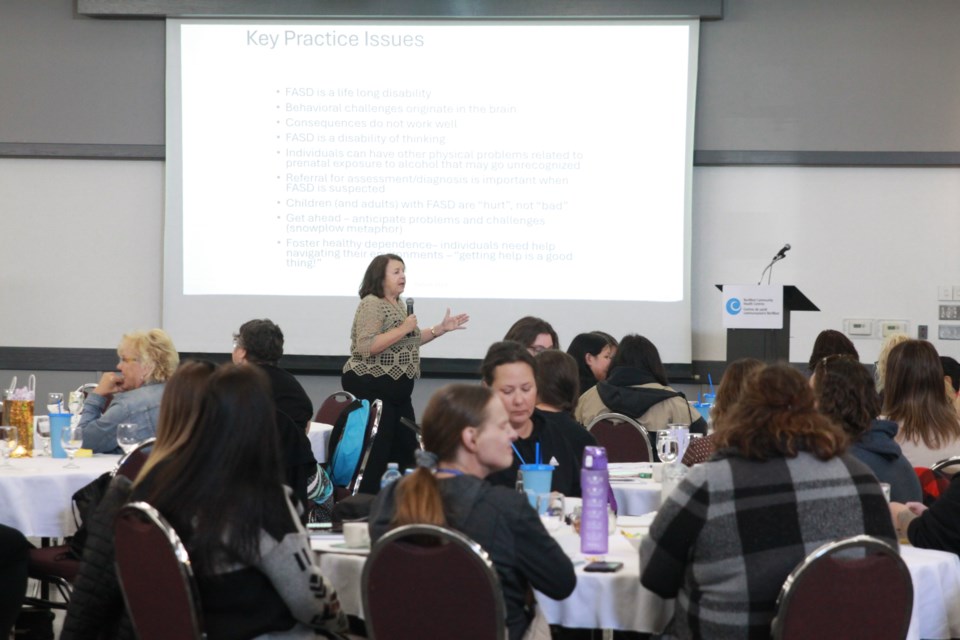THUNDER BAY – On Tuesday at the Italian Cultural Centre, NorWest Community Health Centres hosted their annual Fetal Alcohol Spectrum Disorder (FASD) training event.
This is the 22nd year of NorWest CHC has held the training, according to Maureen Parkes, FASD coordinator at the NorWest Community Health Centres.
“The purpose of the training is to discuss Fetal Alcohol Spectrum Disorder. How do we support individuals with a disability? And how does each sector play a part in providing ongoing long-term support,” she said.
Parkes said 171 people signed up for the training event., with numerous participants from different organizations. "There's medical, there's clinical, there's addictions, there's social services, educators, substance use, mental health.
“We have a lot of individuals from different sectors in our community, which is really important. We have great representation as well from some of our Northern communities,” she said.
She said understanding that it takes a community of support is crucial, "We can provide similar support, we know the outcome will be more successful for the individual with FASD.”
FASD is often non apparent, Parkes said. “You’re not going to be able to look at somebody and know that they've been alcohol exposed.
“We can't see how their brain is functioning. Some of the issues that we see are the difficulties and challenges that they face in their daily living. in problems in school, memory deficits. They might be very hyper individuals, they might have difficulty with following through.
“They might not be able to meet the expectations of the environment they're in and often they're facing failure, it looks like they might not be listening, but actually their thinking is impacted and that's often misunderstood.”
FASD specialist Donna Debolt led the training. She said, “Fetal Alcohol Spectrum Disorder was first recognized in children and then they grew up and were adolescents, and adults 30 years ago, except we're still struggling with ‘here's the diagnosis.’
“What do we do about that? How do we intervene? How are we helpful?”
People are interested in terms of what their role is in this, and how can they be important in the lives of people with this disability, Debolt said.
“We certainly have new information and we certainly have confirmation of some things we've been saying for a very long time and that part's important to acknowledge.
“We're always growing and developing in the field for sure.
“Some of the things that we said many years ago are still very relevant, and it's the systems that are struggling with saying, ‘what does that mean for us?’
Debolt said the they are trying to help people find their place to go forward with this issue.
“It's complicated. It's really common. Four per cent of the Canadian population has an alcohol-related disability and most of them don't get acknowledged or supported in any kind of reasonable way.
“They really struggle and schools go ‘not sure what to do here.’
“The purpose of today is to give people a bit of a clear guide in terms of how to be helpful,” Debolt said.
Parkes said they're seen a good response to the training and it really shows in the numbers.
“We've certainly seen, at NorWest, an increase in referrals for assessment and diagnosis. That's a clear statement. People are starting to perhaps recognize it more, but we have a lot of work to do. We have a lot more stuff we need to do.”
